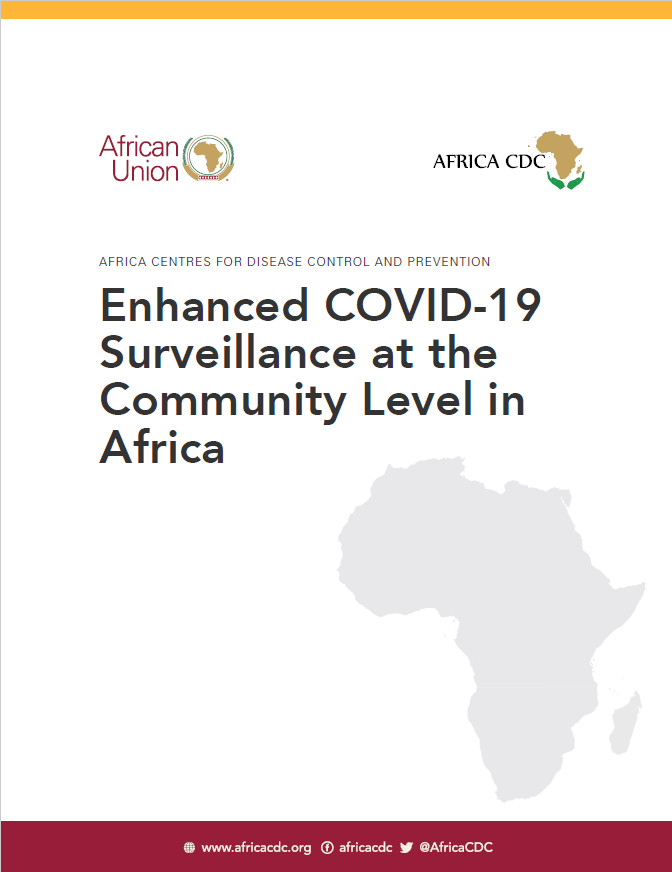In alignment with the Adapted Africa Joint Continental Strategy for COVID-19 Pandemic, Africa CDC developed the Enhanced COVID-19 Surveillance at the Community Level in Africa strategy to aid Member States with:
This strategy is needed given that highly transmissible and more deadly variants continue to circulate and overwhelm public health systems and health care facilities. Additionally, vaccination rates and access to vaccines across the continent remain low, leaving the general population vulnerable to more severe outcomes if they do become infected.
The strategy recommends that AU Member States should enhance, where feasible, existing COVID-19 surveillance to include:
These recommendations are linked to the epidemic phases as defined in the Africa CDC Step-wise Guidance as well as the public health and social measure tiers.
To ensure successful implementation, testing and reporting considerations have been aligned with existing Africa CDC guidance on the implementation of rapid antigen testing and genomics surveillance.
The strategy links to recommendations for isolation, contact tracing and quarantine to decrease transmission of SARS-CoV-2 and ensure adequate treatment for those experiencing severe symptoms. At the community level, guidance for other key interventions are discussed to mitigate the primary and secondary harms of COVID-19.
We encourage all African Union Member States to take up this surveillance strategy.
